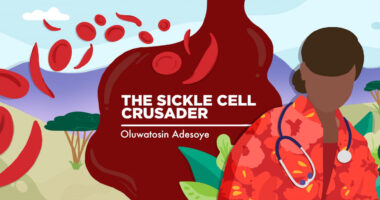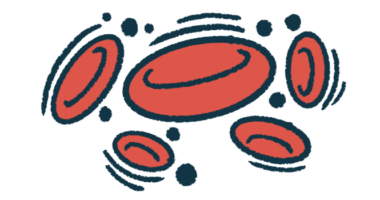Lovo-cel Gene Therapy Program Suspended for Adolescents With SCD

A clinical program for lovotibeglogene autotemcel (lovo-cel), an investigational gene therapy for sickle cell disease (SCD), has been suspended for patients under 18 by the U.S. Food and Drug Administration (FDA).
Bluebird Bio announced the partial suspension of its program due to an ongoing investigation into persistent, nontransfusion-dependent anemia — a condition in which an individual lacks enough healthy red blood cells to carry oxygen to body tissues — in an adolescent patient following treatment with lovo-cel 18 months prior. Otherwise, the patient is clinically well.
“The safety of patients treated with our gene therapies is always our top priority,” Richard Colvin, MD, chief medical officer of Bluebird Bio, said in a press release. “Consistent with the FDA’s direction, we have paused enrollment and treatment of patients younger than 18 in our SCD clinical program, and we will continue to work collaboratively with the FDA to understand and address their concerns.”
Previously known as bb1111 or LentiGlobin, lovo-cel is an investigational, one-time gene therapy being investigated for the treatment of SCD. It is designed to add functional copies of a modified form of the beta-globin gene — the gene mutated in SCD — into a patient’s own blood stem cells.
Once patients have a functional beta-globin gene, their red blood cells can produce an anti-sickling version of hemoglobin. Through this mechanism, lovo-cel is expected to decrease the proportion of faulty hemoglobin and lower the number of sickled red blood cells, as well as red blood cell destruction and other complications.
Although trials for those under 18 have been suspended, clinical trials for patients with SCD older than 18 are still continuing with enrollment and dosing. These include the Phase 1/2 HGB-206 trial (NCT02140554), the Phase 3 HGB-210 trial (NCT04293185), and the long-term follow-up study LTF-307 (NCT02633943). Additionally, follow-up for treated patients of all ages in all studies is still continuing as planned.
“While the partial hold is in place, we intend to continue planned follow-up on previously treated patients from HGB-206 and HGB-210 and plan to enroll and treat new adult patients with lovo-cel through study HGB-210 to further characterize the efficacy and safety of lovo-cel for patients with SCD and to continue to advance the field of gene therapy,” Colvin said.
As of February 2021, 49 patients have been treated with the therapy with up to six years of patient follow-up.
Bluebird expects to receive written questions from the FDA in early 2022, based on the agency’s normal clinical hold procedures.
A previous suspension of lovo-cel has already been dismissed following investigation into two patients who received the therapy (then known as LentiGlobin) and went on to develop acute myeloid leukemia (AML) and myelodysplastic syndrome — two rare forms of blood cancer. It was determined that these occurrences were unlikely to be related to the therapy.
Bluebird is also evaluating what impact this current partial clinical hold in adolescent patients may have on early 2023 — the projected timing for the submission of lovo-cell’s biologics license application, which if approved allows a biologic product to be introduced in the market. As previously announced, patients included in Group C of HGB-206 will form the primary basis of therapy efficacy for approval.







